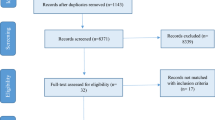Abstract
The purpose of the study was to examine how women with physical disabilities perceive the influence of their disability on maternal care during the first 3 years of their child’s life, to describe the main difficulties that they must deal with everyday when taking care of their children and to determine which resources, either material or human, and/or strategies that are used for this purpose. The study used a qualitative approach. Conversational techniques (semi-structured interviews) were used to assess the effect of mothers’ physical disabilities during the first 3 years of their child’s life. The study involved participants from the Northwest region of Spain called Galicia. Different points of view regarding the influence of disability on motherhood (especially the influence of disability on maternal care), as well as the influence of a disability on children are identified. The main difficulties these mothers have had to struggle with, as well as the strategies used to overcome them, are also identified. The results obtained in this study show that it is clear that society needs to become aware of these mothers’ testimonies in order to eradicate the existing negative stereotypes regarding disability. In addition, the creation of a service that promotes maternal care is proposed, thus empowering women with disabilities in their maternal role.
Similar content being viewed by others
Notes
In this context, role is understood as “a set of behaviors expected by society, shaped by culture, and may be further conceptualized and defined by the client” [3].
References
Esdaile, S., Olson, J.: Mothering Occupations Challenge, Agency and Participation. F.A. Davis Company, Philadelphia (2004)
World Health Organization: International Classification of Functioning, Disability and Health—ICF, 1st edn. WHO, Geneva (2001)
American Occupational Therapy Association: Occupational therapy practice framework: domain and process. Am. J. Occup. Ther. 56(6), 609–639 (2002)
National Statistics Institute: Survey on disability, personal autonomy and dependency situation. 2 (2008). http://www.ine.es/jaxi/menu.do?type=pcaxis&path=%2Ft15%2Fp418&file=inebase&L=1. Accessed 10 Sept 2013
United Nations: Universal declaration of human rights (2009). http://www.un.org/en/documents/udhr/index.shtml. Accessed 2 Sept 2013
Pelaez Narváez, A., Martínez Ríos, B., Leonhardt Gallego, M.: Maternidad y Discapacidad. CERMI, Madrid (2009)
Reid, D., Angus, J., McKeever, P., Miller, K.L.: Home is where their wheels are: experiences of women wheelchair users. Am. J. Occup. Ther. 57(2), 186–195 (2003)
Crepeau, E., Cohn, E., Schell, B.: Willard & Spackman’s Occupational Therapy, 11th edn. Lippincott Williams & Wilkins, Baltimore (2009)
Poole, J.L., Willer, K., Mendelson, C.: Occupation of motherhood: challenges for mothers with scleroderma. Am. J. Occup. Ther. 63(2), 214–219 (2009)
Toms Barker, L., Maralani, V.: Challenges and Strategies of Disabled Parents: Findings from a National Survey of Parents with Disabilities. Berkeley Planning Associates, Oakland (1997)
Prilleltensky, O.: A ramp to motherhood: the experiences of mothers with physical disabilities. Sex. Disabil. 21, 21–47 (2003)
Olkin, R., Abrams, K.: Parents with Disabilities and their Adolescent Children Final Report. Through the Looking Glass, Berkley (2003)
Polit, D.F., Beck, C.T.: Nursing Research, Principles and Methods, 7th edn. Lippincott Williams & Wilkins, Philadelphia (2004)
Rogers, J.: Guía para la Mujer con Discapacidad: Del embarazo al parto. Fundació Institut Guttmann, Barcelona (2006)
Author information
Authors and Affiliations
Corresponding author
Ethics declarations
Conflict of interest
The authors declare that the research was conducted in the absence of any commercial or financial relationships that could be construed as a potential conflict of interest.
Ethical aspects
All procedures performed in studies involving human participants were in accordance with the ethical standards of the institutional and/or national research committee and with the 1964 Helsinki declaration and its later amendments or comparable ethical standards. Informed consent was obtained from all individual participants included in the study.
Rights and permissions
About this article
Cite this article
Pousada García, T., Madrid Martínez, P., Pereira Loureiro, J. et al. Influence of Disability on Maternal Care. Sex Disabil 33, 469–481 (2015). https://doi.org/10.1007/s11195-015-9413-9
Published:
Issue Date:
DOI: https://doi.org/10.1007/s11195-015-9413-9



